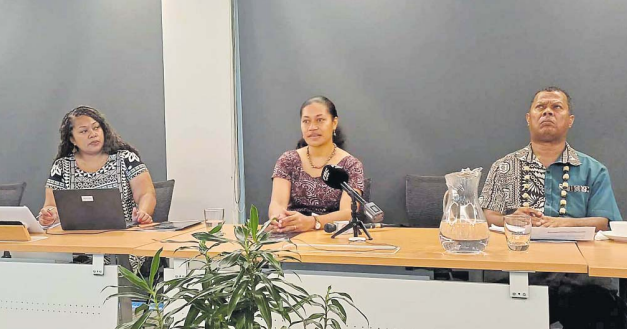FIJIAN researcher Dr Salanieta Kitolelei is calling for clearer distinctions between indigenous, traditional, and local knowledge to ensure policies on resource management and cultural preservation are inclusive and effective.
Dr Kitolelei, who recently completed her PhD at the University of the South Pacific, said misunderstanding these terms often leads to confusion in policymaking and token participation of communities in important decision-making processes.
Her research focussed on the traditional knowledge of fishing from the fisher’s perception, and how their knowledge could inform sustainable fisheries management in Fiji.
“The fishers, they usually have so much knowledge, and it’s not input into a lot of work that’s done in terms of resource management in the fishery sector,” Dr Kitolelei said.
“But I’d like to also say that understanding of the different knowledge systems (is important).
“A lot of people talk about traditional knowledge, indigenous knowledge, local knowledge, and they use the terms interchangeably, but it’s actually different knowledge systems.”
She explained that local knowledge comes from individuals’ lived experiences, traditional knowledge is communal and can be shared across communities, while indigenous knowledge is specific to a particular group and deeply connected to culture, traditions, and land.
She said the lack of clarity often created barriers for integrating these perspectives into national policies.
“I think that’s one of the gaps that we have in policy.
“The reason why people are scared to include traditional knowledge and indigenous knowledge into policy work is because they do not understand the basics of the knowledge systems.
“I think once we understand the basics, we’ll be able to move forward in the policy sector and move forward also in the management by including people – not only including locals, just because it looks nice on paper, but including them in conversations in from the beginning.”
Dr Kitolelei added that intellectual property laws need to safeguard intangible cultural heritage, such as fishing techniques and rituals, alongside tangible items like fishing gear or traditional crafts.
Worry over loss of indigenous knowledge
FIJIANS must reclaim their indigenous knowledge before it disappears completely, says Sau Vaka Culture Consultancy founder Simione Sevudredre.
Speaking at a media briefing on the upcoming Indigenous and Traditional Knowledge Conference, he said centuries of indigenous knowledge were being lost because of the emphasis on colonial history and modern practices.
“We’ve forgotten a lot of our traditional knowledge — I’m not finger pointing — but because with our colonial experience, colonisation, the education system, with all due respect, was silent on our indigenous knowledge,” Mr Sevudredre said.
“We learn other knowledge, other history that over time our metaphorical cups, our mind is full.
“There’s nothing wrong with Western knowledge, but when we forget our own, we lose part of who we are.” He said indigenous languages were the key to preserving traditional knowledge.
“The challenge for us here in Fiji on the ground is that we tend to look at our indigenous language with disdain.
“The vehicle to communicate the spirit of our indigenous knowledge is in our language.
“When we choose to be silent on our language, or when we do not think it is worthy or worthwhile — therein is the challenge.”
Mr Sevudredre said the real challenge also lies with how indigenous people view their culture versus how they view other cultures.
“We, as indigenous people, the biggest challenge is ourselves as we tend to value or think that the grass is always greener on the other side with other knowledge, other ways of doing things, forgetting that ours is already ancient.
He also highlighted how modern conveniences are replacing traditional practices.
“Once upon a time, chestnuts were wrapped in leaves at the market.
“Now they are sold in plastic. We have chosen plastic over tradition, and that’s a reflection of how far we have drifted.”
Mr Sevudredre said reclaiming indigenous knowledge was not just about holding conferences or writing policies but taking action at the community level.
“If we don’t value and practice our knowledge on the ground, all these international interventions will be like building a house with no foundation.”



